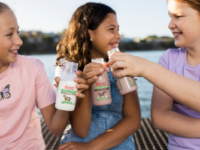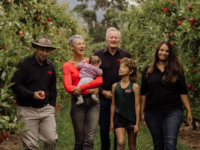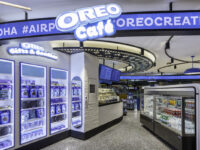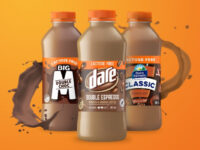The focus on health and wellbeing has never been stronger and this is evident, both at a consumer level through the product offering in retail stores, and also at government policy level.
Health and nutrition are inextricably linked, showcased most recently by the Australian government’s new Pregnancy Care Guidelines. These guidelines now advise pregnant women that supplementation with omega-3 long-chain polyunsaturated fatty acids (800 mg DHA and 100 mg EPA per day) may reduce their risk of pre-term birth, if they are low in omega-3. Recent Royal Australian Council of General Practitioner’s research shows that only 10% of women at childbearing age meet the recommended dietary intake of omega-3 DHA.
It’s not only this category that is at risk. Globally, 80 per cent of the population is deficient in omega-3 EPA+DHA, with children consuming less than any other age group.
Omega-3 DHA is an essential nutrient for heart, brain, and vision health. But buyer beware, not all omega-3s are created equal!
ALA is the omega-3 fatty acid present in many omega-3 enriched eggs currently on shelf in some supermarkets. This ALA can be converted to DHA but requires consumption levels much higher than realistically possible day-to-day. So, consuming the omega-3 DHA itself is important.
Front-of-pack nutritive claim potential
In Australia, when foods contain a certain quantity of DHA, front-of-pack nutritive value claims of “increased in” or “source of” omega-3 are allowed to be made.
This provides both processors and retailers an opportunity to not only improve the health of consumers but to boost their brand value and stand out from their competitors. Traditionally people get omega-3 DHA from oily fish such as salmon and mackerel, but many people don’t like the taste and therefore don’t consume enough, or find regular consumption too expensive. To ensure a balanced diet, alternative food sources of omega-3 DHA are needed.
At Humanativ, we want to make the healthy choice, the easy choice, and so we have developed a solution that allows commonly eaten foods such as chicken and eggs to be naturally enriched with omega-3 DHA via the animal’s feed. When animals eat the enriched feed, their meat and eggs become a source of omega-3 DHA and thus the health benefits of omega-3 DHA are passed on to those who consume the meat and eggs.
To prove this, we commissioned a double-blinded, randomised controlled study with the Royal College of Surgeons in Ireland (Stanton et al, 2020). Click here for trial details.
The 161 participants were split into four groups as illustrated below. They each consumed at least three portions per week of chicken and eggs, either standard foods or naturally enriched with omega-3 DHA, for six months. The omega-3 DHA enriched chicken and eggs were achieved by including our algal-derived omega-3 DHA product (OmegaPro) in the diet of the animals.

We saw a 65-per-cent reduction in those with a very low omega-3 index (red in the graph below, which would put them in the very high-risk category), in participants that consumed the enriched chicken and eggs. This would be expected to translate to a 15-per-cent reduction in deaths due to cardiovascular issues. A reduction in blood pressure was also measured.
The findings prove that, similar to oily fish, the omega-3 DHA in non-traditional bio-enriched foods such as chicken and eggs is bioavailable to consumers, therefore improving health outcomes.

Sustainability at our core
In addition to improving human health, our source of algal oil is a patented, highly sustainable source compared to using fish oil which depletes wild fish stocks.
Our trials have consistently shown an improvement in animal performance: significantly increasing average bodyweight and reducing average Feed Conversion Ratio. The improvements result in a reduction of greenhouse gas emissions and reduce soya usage.
At a time when sustainability is high on the agenda, Humanativ offers a real solution.
If you would like to know more about how Humanativ can help add value to your business, visit www.humanativ.com or email info@humanativ.com







